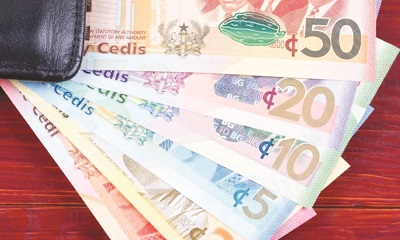
Ghana’s high levels of public debt is likely to remain a concern for investors in the years ahead says Fitch Solutions.
According to Fitch Solutions 4th Quarter 2021 Country Report, a sustained fiscal deficit albeit a moderately narrowing one would see the country’s debt stock continue to rise over the coming years.
It however, stated that as a proportion of Gross Domestic Product, it should stabilise this year, and then gradually reduce in the medium to long term.
“We are confident that Ghana will see somewhat narrower fiscal deficits and slower growth in public borrowing in the medium-to-long term. This will bring the debt burden down somewhat as a percentage of GDP relative to the early 2020,” the report said.
“While a large debt load in itself is not a direct threat to financial stability, we do not rule out the debt load causing some problems over the long term due to the high interest payments the debt entails”, it further stated.
Fitch Solutions said the budget deficit would narrow further in 2022, albeit to a still-wide 7.6 per cent of GDP.
“We expect that as economic conditions normalise further in 2022, revenues will continue to recover and rise to 15.9 per cent of GDP. Expenditure growth will moderate – in line with the government’s medium term fiscal consolidation objectives – and consequently we forecast total spending falling as a proportion of GDP to 23.5 per cent” it said.
It said expenditure would remain elevated in the coming months, and rise from 24.7 per cent of GDP in 2020 to 25.6 per cent (114.6bn) in 2021.
The report said public sector salaries and benefits would remain the largest non-interest expenditure item, followed by grants to other government units.
The government expects the public sector wage to rise by 7.2 per cent to 30.3bn in 2021.
However, Fitch Solutions anticipates that growing political pressure for larger pay increases as evidenced by threats in late July of nationwide strike action by university staff over pay demands, to result in higher-than expected expenditure.
The budget also includes funding for the second phase of the government’s Ghana CARES ‘Obaatan Pa’ coronavirus support and recovery scheme, which includes funding to develop public healthcare capacity, procure vaccines, and provide support for local communities and businesses.
These measures will come at the expense of general procurement expenditure, and capital expenditure (capex), funding for which will both be trimmed in 2021. Capex is likely to fall from 12.1 per cent of total expenditure to 10.2 per cent in 2021.




